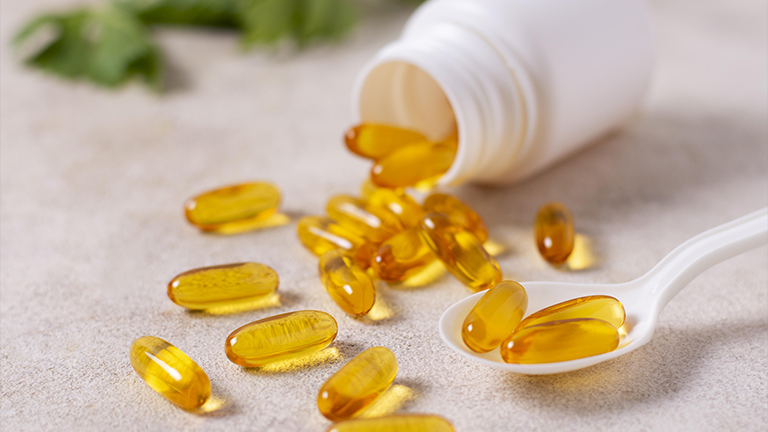In today’s fast-paced world, maintaining optimal health can be challenging. While a balanced diet should provide most essential nutrients, many people still suffer from vitamin deficiencies. This raises an important question: What is the best vitamin to take daily?
This science-backed guide explores the best vitamins for daily intake, their benefits, and how to choose the right supplements for your needs.
Why Take Daily Vitamins? The Key Benefits
Vitamins play a crucial role in maintaining overall health, from boosting immunity to enhancing energy levels. Here’s why incorporating daily vitamins into your routine can be beneficial:
- Fills Nutritional Gaps: Even with a healthy diet, some vitamins (like Vitamin D) are hard to obtain in sufficient amounts.
- Boosts Immunity: Vitamins C, D, and zinc strengthen the immune system.
- Enhances Energy Levels: B vitamins help convert food into energy.
- Supports Skin & Hair Health: Vitamins A, C, and E promote collagen production and skin repair.
- Prevents Deficiencies: Many adults lack essential vitamins like D, B12, and magnesium.
Top 5 Essential Vitamins You Should Take Daily
1. Vitamin D: The Sunshine Vitamin for Immunity & Bones
Why it’s essential:
- Supports bone health by aiding calcium absorption.
- Strengthens immune function.
- Reduces inflammation and depression risk.
Best sources:
- Sunlight (15-20 minutes daily)
- Fatty fish (salmon, mackerel)
- Fortified dairy products
- Supplement recommendation: 1,000–2,000 IU daily (consult a doctor for higher doses).
2. Vitamin C: Antioxidant Powerhouse for Skin & Immunity
Why it’s essential:
- Boosts collagen production for healthy skin.
- Enhances immune defense against infections.
- Acts as a powerful antioxidant.
Best sources:
- Citrus fruits (oranges, lemons)
- Bell peppers
- Broccoli
- Supplement recommendation: 500–1,000 mg daily (excess can cause digestive issues).
3. B Vitamins: Energy Boosters & Stress Relievers
Why they’re essential:
- B12 supports nerve function and red blood cell production.
- B6 helps regulate mood and sleep.
- Folate (B9) is crucial for DNA synthesis.
Best sources:
- Whole grains (B1, B3)
- Eggs & meat (B12)
- Leafy greens (B9)
- Supplement recommendation: A B-complex vitamin for overall energy support.
4. Vitamin A: Essential for Vision & Skin Health
Why it’s essential:
- Supports eye health and prevents night blindness.
- Promotes skin repair and immune function.
Best sources:
- Carrots
- Sweet potatoes
- Spinach
- Supplement recommendation: 700–900 mcg RAE (Retinol Activity Equivalents).
5. Vitamin E: A Powerful Antioxidant for Cellular Health
Why it’s essential:
- Protects cells from oxidative damage.
- Supports skin hydration and healing.
Best sources:
- Nuts & seeds
- Avocados
- Spinach
- Supplement recommendation: 15 mg daily (avoid high doses if on blood thinners).
Multivitamins vs. Individual Supplements: Which is Better?
Pros of Multivitamins:
✅ Convenient (covers multiple nutrients in one pill).
✅ Reduces pill burden.
✅ Ideal for general health maintenance.
Pros of Individual Supplements:
✔️ Targeted dosing for specific deficiencies.
✔️ Avoids unnecessary nutrients.
✔️ Better absorption for certain vitamins (e.g., B12 sublingual tablets).
Verdict: If you have no major deficiencies, a high-quality multivitamin is a good choice. For specific needs (like Vitamin D deficiency), individual supplements work better.
How to Choose the Best Vitamin for Your Needs
- Check for Deficiencies – A blood test can reveal which vitamins you lack.
- Look for Third-Party Testing – Certifications (USP, NSF) ensure quality.
- Avoid Mega-Doses – Excess vitamins (like A & E) can be harmful.
- Consider Form – Gummies, capsules, and liquids have different absorption rates.
- Read Labels – Avoid fillers like artificial colors and preservatives.
Natural Food Sources vs. Supplements: What’s More Effective?
While supplements help fill gaps, whole foods provide better absorption and additional nutrients like fiber and antioxidants.
Best approach:
- Prioritize food sources (e.g., citrus for Vitamin C, salmon for Omega-3s).
- Use supplements strategically (e.g., Vitamin D in winter, B12 for vegans).
Common Vitamin Deficiencies & How to Spot Them
| Vitamin | Deficiency Symptoms |
| Vitamin D | Fatigue, bone pain, frequent infections |
| Vitamin B12 | Numbness, fatigue, memory issues |
| Iron | Pale skin, dizziness, brittle nails |
| Magnesium | Muscle cramps, insomnia, anxiety |
If you experience these symptoms, consult a doctor before self-supplementing.
Expert Tips for Safely Incorporating Vitamins into Your Routine
✔ Take fat-soluble vitamins (A, D, E, K) with meals for better absorption.
✔ Avoid mixing calcium and iron supplements – they compete for absorption.
✔ Monitor interactions – Some vitamins (like Vitamin K) interfere with blood thinners.
✔ Cycle supplements – Taking breaks prevents toxicity with fat-soluble vitamins.
Final Verdict: What’s the Best Vitamin to Take Daily?
The best vitamin depends on your diet, lifestyle, and health needs. However, Vitamin D, a B-complex, and Vitamin C are among the most beneficial for most people.
For general health: A high-quality multivitamin + Vitamin D3 (if sun exposure is low).
For specific needs: Targeted supplements based on deficiencies.
Always consult a healthcare provider before starting any new supplement regimen!
Key Takeaways
- Vitamin D, C, and B-complex are among the best daily vitamins.
- Multivitamins are great for general health, while individual supplements target deficiencies.
- Food sources should be prioritized, but supplements help fill gaps.
- Testing for deficiencies ensures you take only what you need.
By choosing the best vitamin for your needs, you can enhance energy, immunity, and long-term health!


